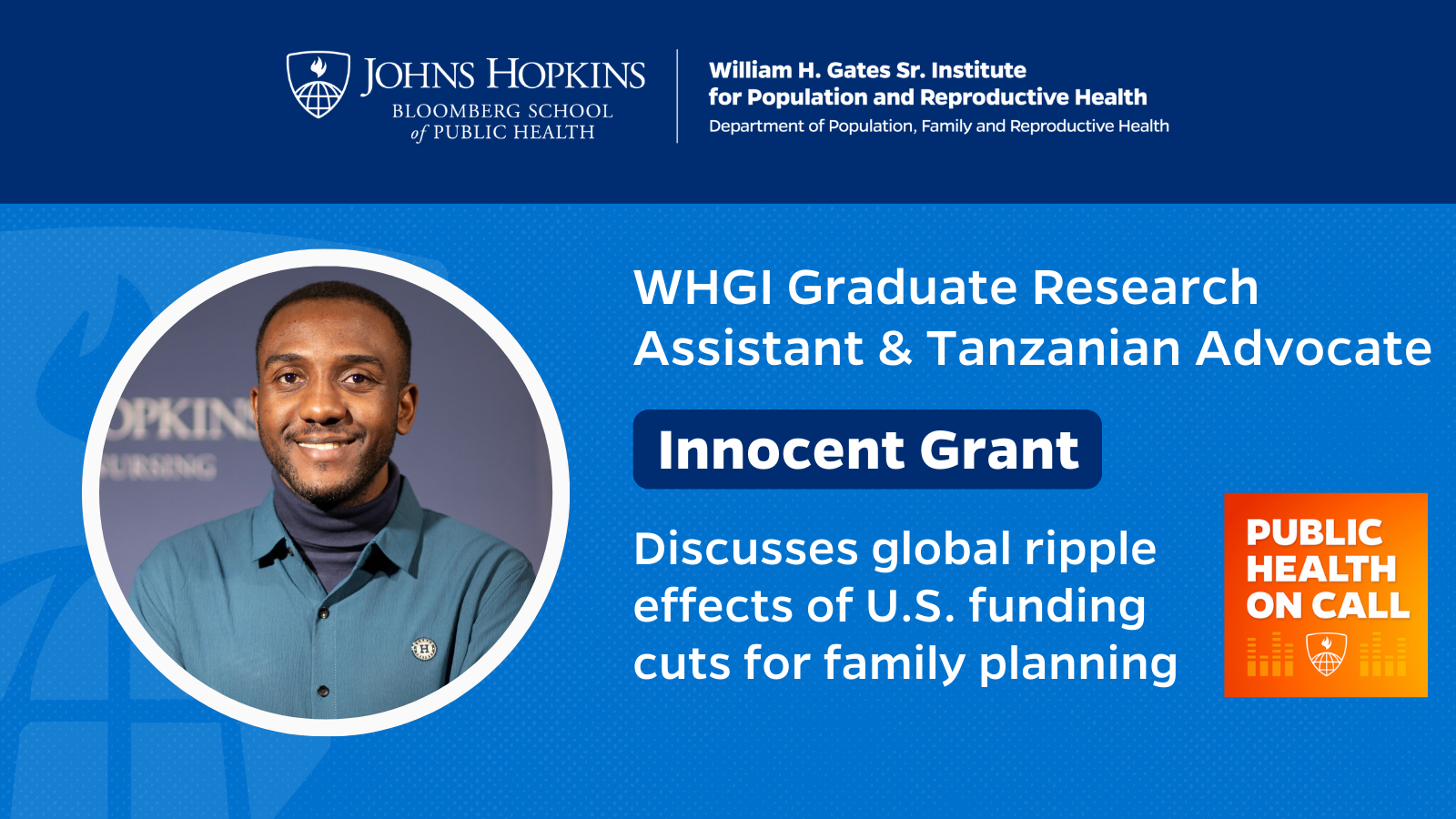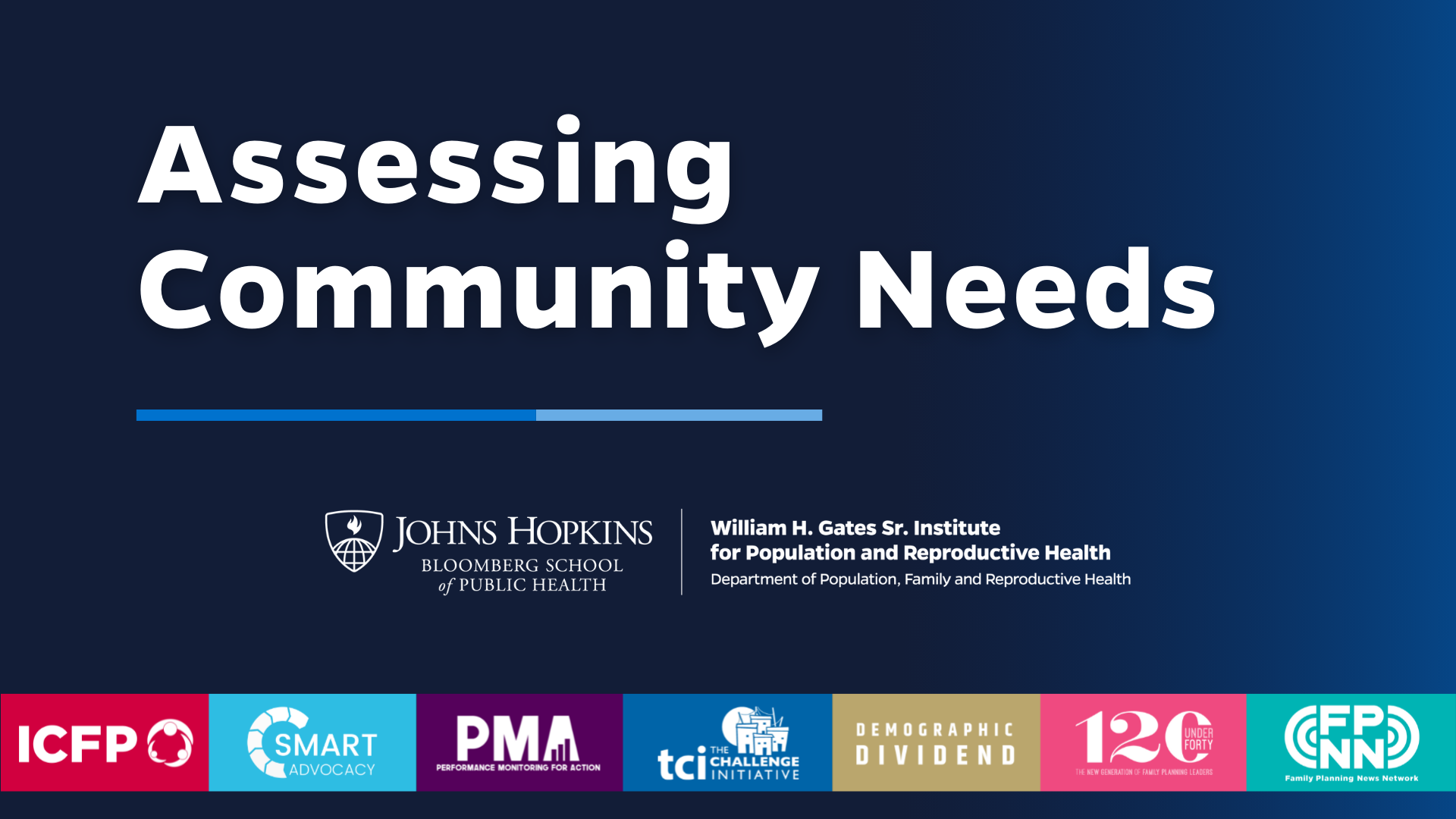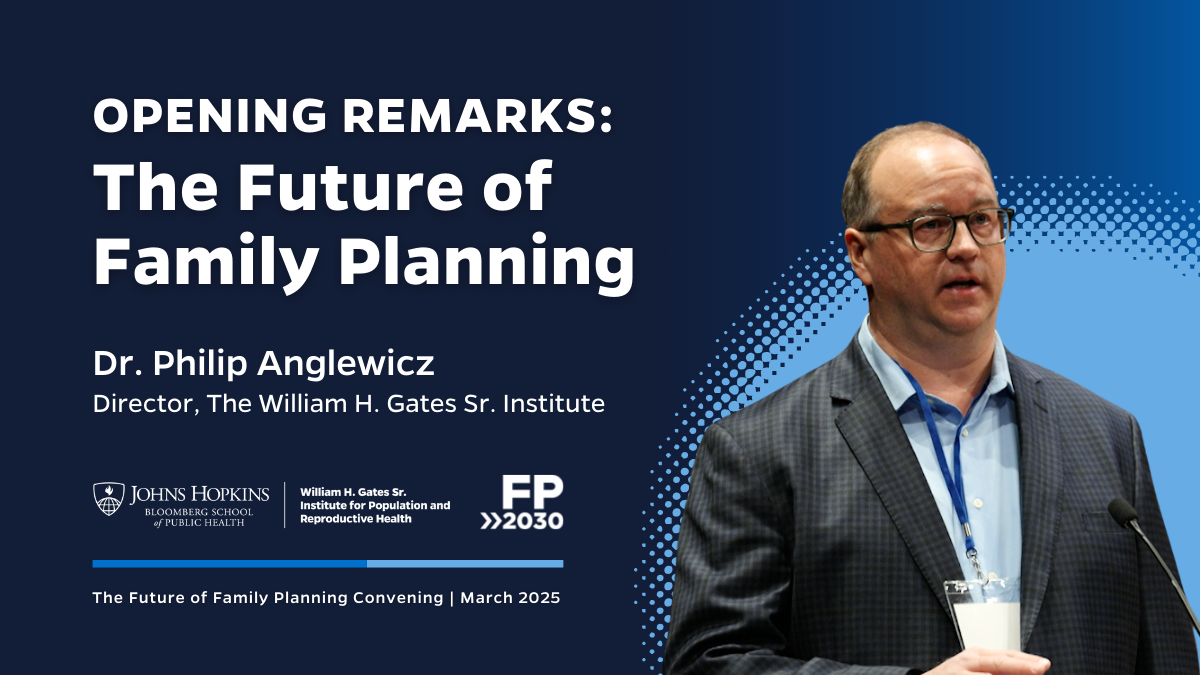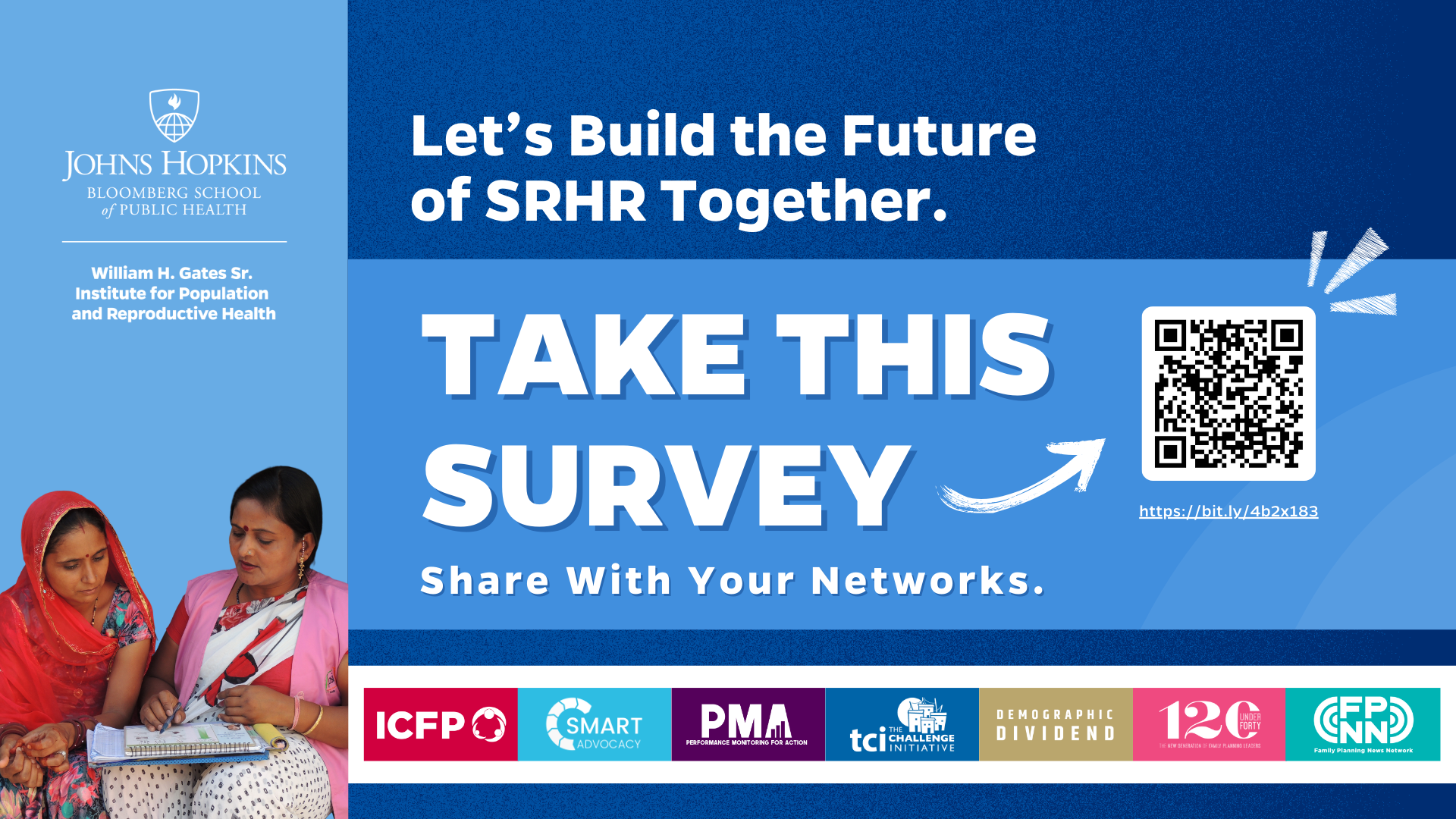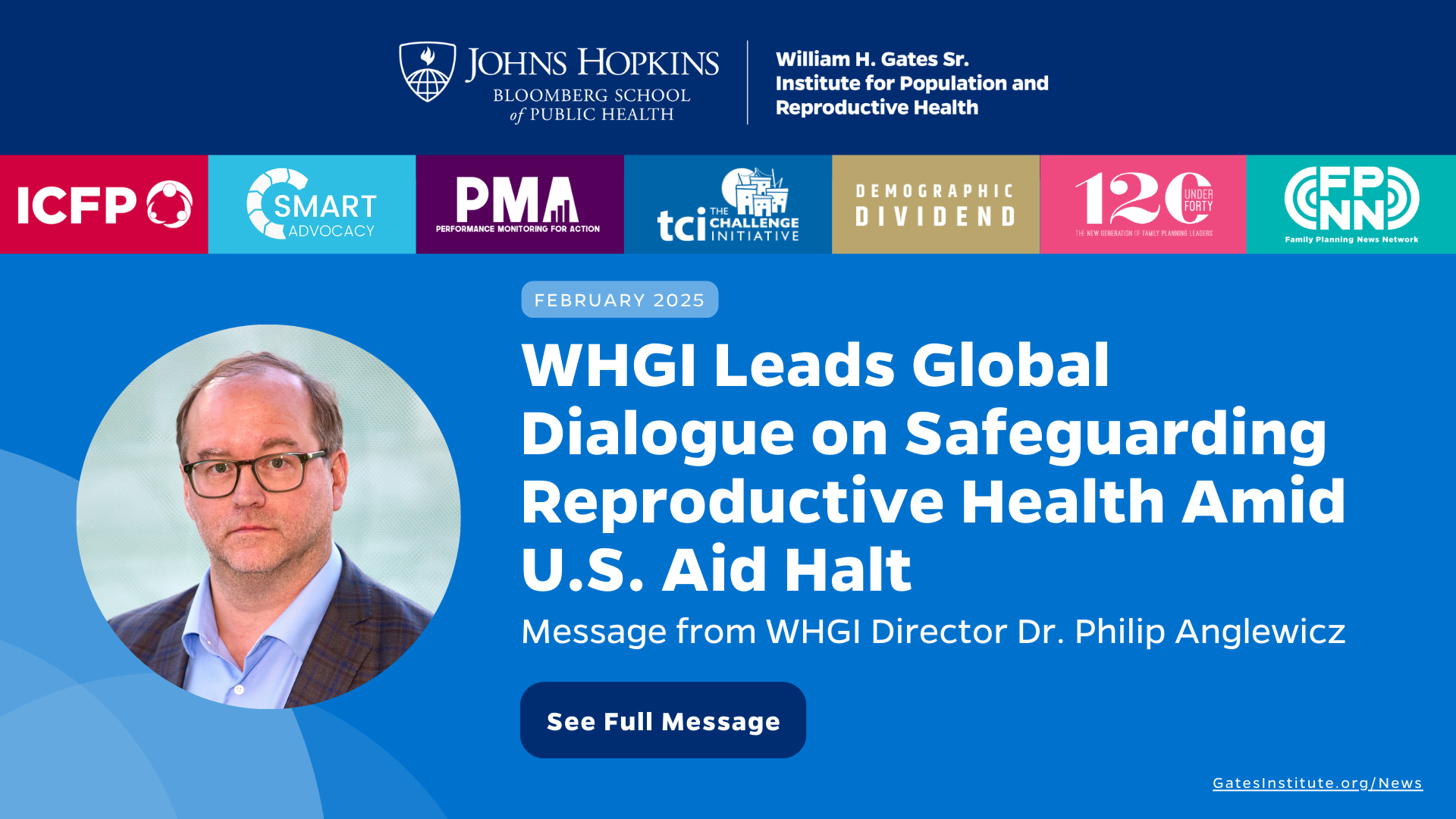January 4, 2022—Six young emerging new leaders from different countries in sub-Saharan Africa and South Asia will each receive $10,000 to lead five innovative programs with potential to drive major breakthroughs in reproductive health. The awards are part of the 2021 Ingenuity Fund, developed by the Johns Hopkins University Bloomberg School of Public Health’s Bill & Melinda Gates Institute for Population and Reproductive Health (Gates Institute) and supported by Pathfinder International and Bayer.
All applicants to the Ingenuity Fund, including the six award winners—Joshua Dilawar in Pakistan, Maia Freudenberger in Madagascar, Simon Manga in Cameroon, Nissily Mushani and Barwani Msiska in Malawi, and Sadia Rahman in Bangladesh—are part of the 120 Under 40: New Generation of Family Planning Leaders (120 Under 40).
The 120 Under 40 program, which is supported by Bayer and the Gates Institute, shines a light on positive disruptions made by the 120 young leaders in reproductive health globally. Launched in 2019, the Ingenuity Fund supports and enhances the visibility of these young leaders by providing seed funding for fresh and innovative ideas that respond to specific challenges and push the boundaries of effective programming.
“The 120 Under 40 Ingenuity Fund seeks to galvanize the 120 Under 40 winners to think boldly about addressing challenges that confront the reproductive health community, and to infuse additional creative energy and ideas into thinking around the future of family planning,” said Jose G. Rimon II, Director of the Gates Institute.
“Pathfinder engages youth in meaningful ways to ensure the programs we develop meet their reproductive health needs and support their well-being,” said Crystal Lander, Chief Strategic Engagement Officer at Pathfinder International. “We are delighted to be able to support these exceptional young leaders to be game-changers in our field.”
Projects funded through the 2021 Ingenuity Fund include those that will:
- Reach particularly marginalized communities with sexual and reproductive health information and services, such as deaf youth in Pakistan and sex workers in Cameroon.
- Use innovative approaches to tell stories and change hearts and minds, like collaborative filmmaking in Madagascar and pleasure-positive sex education in Malawi.
- Apply creativity to meeting intersecting challenges, such as art education to raise awareness about the links between climate change and sexual and reproductive health in Bangladesh.
Ingenuity Fund winners and their projects will be spotlighted during 2022 World Contraception Day and the 6th International Conference on Family Planning taking in Pattaya City, Thailand 14- 17 November 2022.
###
About the Gates Institute
The Gates Institute conducts and facilitates cutting-edge research in family planning, reproductive health, and population dynamics and translates science into evidence-informed policies, programs, and practice. The Institute works as an innovator, partner, advocate, and convener to bridge the gap between knowledge and implementation and promote access to universal reproductive health and family planning for all.
About Pathfinder International
As a global health organization with locally led, community-driven programs, Pathfinder International supports women to make their own reproductive health decisions. Pathfinder works with local partners to advance contraceptive services, comprehensive abortion care, and young people’s sexual and reproductive rights in communities around the world—including those affected by poverty, conflict, climate change, and natural disasters. Taken together, Pathfinder’s programs enable millions of people to choose their own paths forward.
About Women’s Healthcare at Bayer
Bayer is a recognized leader in the area of women’s healthcare, with a long-standing commitment to delivering science for a better life by advancing a portfolio of innovative treatments. Bayer offers a wide range of effective short- and long-acting birth control methods as well as therapies for menopause management and gynecological diseases. Bayer is also focusing on innovative options to address the unmet medical needs of women worldwide. Today, Bayer’s research and development efforts focus on finding new treatment options for menopause as well as gynecological diseases and includes several compounds in various stages of pre-clinical and clinical development. Together, these projects reflect the company’s approach to research, which prioritizes targets and pathways with the potential to alter the way that gynecological diseases are treated. Additionally, Bayer intends to provide 100 million women in low-and-middle income countries by 2030 with access to family planning by funding multi-stakeholder aid programs and by ensuring the supply of affordable modern contraceptives. This is part of the comprehensive sustainability measures and commitments from 2020 onwards and in line with the Sustainable Development Goals of the United Nations.



